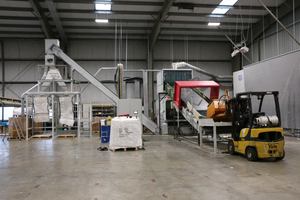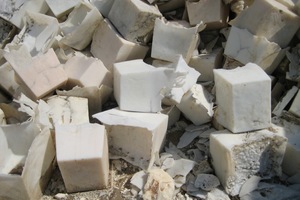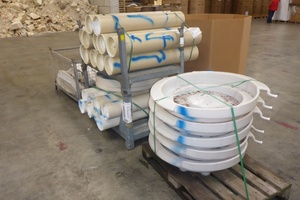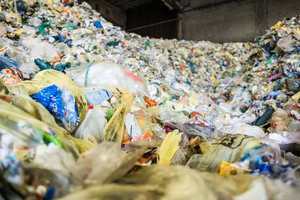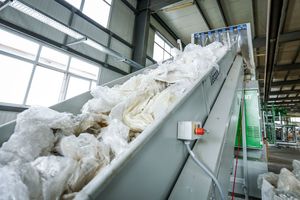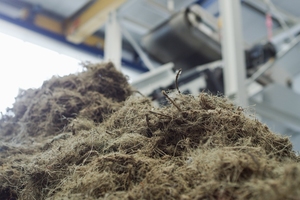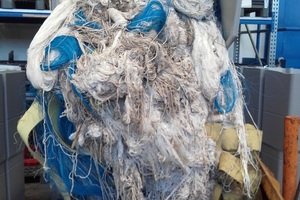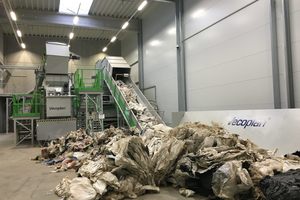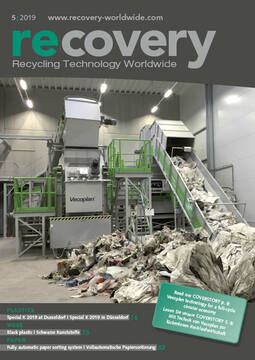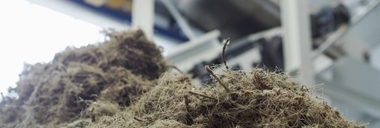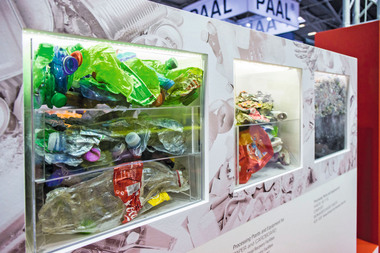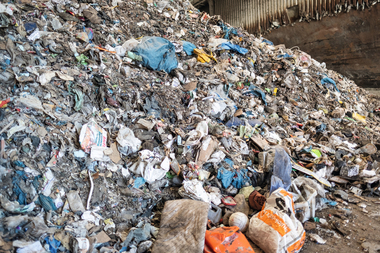Plastics recycling: Vecoplan technology for a full-cycle circular economy
Consumption of plastics continues to rise around the globe, and there is thus also more and more plastic waste. But this can be recycled and returned in high quality to the production route. Recycling will be a focal topic at the K in Düsseldorf, the international trade fair for plastics, rubber, plastics processing and plastics production. Also present will be Vecoplan AG, showing machinery and systems for the shredding, conveyance and processing of primary and secondary feed materials – and thus permitting a closed „circular economy“.
Recycling of production waste
Throughout Europe, only 31% of plastic waste is recycled, and 41% is incinerated – and thus used a second time. This is not a particularly great amount. „The demand for recyclates is still too low,“ states Martina Schmidt, head of Recycling I Waste at Vecoplan. Manufacturers of consumer goods, building materials and furniture are going to have to rethink, if this is to change. According to forecasts, world consumption of plastics is set to double during the next twenty years. At present, a major portion of the material is obtained as primary material from crude oil. The aim of present-day politics within the EU, and also of the European recycling organisations, is that, in future, the percentage of recycled plastics should rise tangibly. „The increasing demand for plastics could, inter alia, also result in a difficult supply situation“, Martina Schmidt continues. „In the case of commercial plastics, for example, delivery times may now be as much as four months. This also causes prices to rise. This is not a satisfactory situation for plastics users.“ The recycling of plastics is thus a cost-effective solution for such companies.
The quality must be right
For this, the quality has to be right, however. The better the purity of the recyclate, the more easily it can be processed, and the more easily high-quality products can be made from it. „Without constant quality, there is no process certainty, and therefore no good end product“, notes Schmidt. For this reason, production waste in the form of purgings or rejects constitute a cost-efficient alternative. This material can be directly processed to granules by the users and then returned to the production cycle – it possesses the same quality as new material. There is thus then no waste at all, and the circle is closed. Such so-called in-house recycling offers a whole series of advantages: the companies have lower expenses for high-cost virgin material and there are no costs for disposal in external recycling facilities. In addition, less space in the works building is required for storage of reject material. That material requires only temporary storage until clean processing of the feed material can take place.
In the case of collected plastic waste this is not so easy, however, and can, in addition, be expensive – more expensive than primary plastics, in some instances. This is the result, inter alia, of the fact that recycling is then much more complicated, because the plastic waste is often contaminated, and arrives unsorted from the collecting points. Much water and energy are necessary to prepare the material in such a way that it can be processed into a high-quality regrind. In addition, only comparatively small quantities are generally produced. „But, in an ideal case, the regrind also has the quality of virgin product, with the result that the latter can be replaced on a one-to-one basis in the end application and will land, ideally, in the same price category,“ Martina Schmidt explains.
The right technology is in demand
But this is not at all so simple – see, for example, comminution. The Vecoplan business-unit manager mentions, as an example, the glass-fibre reinforced plastic GF 30. „The fibres incorporated into this material must be of a certain length, in order that they can assure the necessary stiffness“, she notes. „Quality suffers if the fibres are too long, and also if they are too short.“ In the case of other materials – such as PET – viscosity plays an important role, if these materials are to be compounded in the extruder. Flowability is promoted somewhat, for example, if shredding takes place in an only single-stage process rather than in a multi-stage one. Vecoplan is cooperating closely with its customers in order to find an appropriate solution for the particular application for the various plastics types. The mechanical engineers are developing systems, which they adapt to the individual applications in numerous tests performed in the company‘s own technology center.
„What distinguishes the necessary machine and what components are the most important?“, Martina Schmidt repeats our question. „Cutting geometry, above all, is decisive in our shredders. We can adapt our machines in detail to the input and output requirements via the selection of the rotor and cutters, and of the corresponding screen. Performance can thus be adjusted to precisely match the interface. And we will, for example, select a larger rotor diameter, which can be equipped with hardened tools, all depending on the needs.“ These cutters can also be multiply reused and quickly changed. Their core can be raised and their mounting adapted to the particular task, to achieve a more stable and tougher tool type. Also very important is the drive system and a robust design and execution, in order that premature wear does not occur in shredding of certain materials, such as glass-fibre-reinforced materials, for example.
A look into the future
At the K in Düsseldorf, the international public will see how the circuit can be closed. Exhibitors like Vecoplan will be showing that regrinds can now attain almost new-product quality. „Machine-makers in Europe have the best technologies anywhere in the world, and also the process-engineering know-how needed for production of high-quality recyclates“, Martina Schmidt affirms. The company will thus be presenting available technical solutions needed for the requirements of the circular economy and showing concepts for future tasks.
Single-stage shredder of the new VIZ series
Currently a central challenge is the preservation of an environment worth living for future generations. However, a future without plastics is hard to imagine, but the disadvantages are omnipresent - for example, uncollected waste that pollutes land and sea. The plastic find their way back through the food chain. This can be prevented by a functioning circular economy system. High demands are placed on recycling in particular. The more pure the material is, the easier it can be processed and it results in high-quality products. With its solutions, Vecoplan AG is part of this value chain and has been a successful and reliable partner of the recycling industry for years. The Vecoplan shredders, which can be perfectly adapted to the technical properties of the plastic and the subsequent recycling process, experience a particularly high acceptance in the market. They meet the high demands on availability and profitability. At K, Vecoplan will be demonstrating a further milestone in mechanical processing with the single-stage shredder of the new VIZ series (Vecoplan Infinity shredder). Special features: The machine is designed so that, depending on requirements, it can be equipped either with the HiTorc drive from the proven VAZ with its high starting and torque strength or with the ESC drive, the frequency-controlled direct belt drive from Vecoplan. Both systems are patented and convince through high-energy efficiency.
A particular highlight is the high flexibility of this machine in terms of cutting geometry: it can be adapted in detail to the input and output requirements via the rotor and blade assembly as well as the corresponding screen selection. The performance can be adjusted with interface precision. With the efficient machine concept, the user benefits from short set-up times and a high degree of adaptability to different output requirements.

